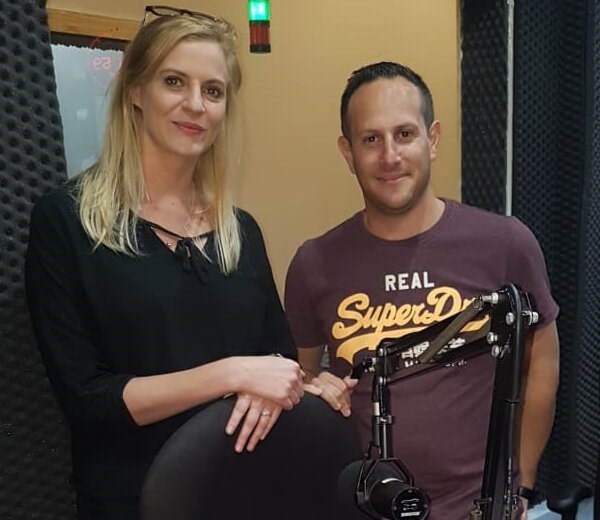
WhatsApp is, without a doubt, the new normal when it comes to communication.
With a platform like this, where anything is possible, it begs the question: is email dead or dying? The answer, as expressed during an interview with Charisse Zeifert, from the South African Jewish Board of Deputies (SAJBD), on Chai FM, was an enthusiastic no! “Email is absolutely not dead and it isn’t going to die any time soon,” said Megan Tyack, PR manager at Firewater.
Tyack along with Firewater’s CEO, Mark Stecker, discussed communication strategies that should be taken into consideration before and after each message, email, newsletter or post is sent out.
“Before you send out a communication be sure to think of who it needs to reach, why you are sending it and what it should say,” said Stecker.
The language that your brand uses is especially important when safeguarding against misinterpretations. The brand’s tone of voice, which should be created early in the developmental stages of a brand, is vital when preparing and planning any communications that goes out to the consumers.
Tone certainly can, and does, get lost when one is reading a message, email or post however, with the correct strategy in place, measures can be implemented to contain the damage. Even though WhatsApp messaging is regarded as mainstream, long professional messages should still be sent via email, since email is still regarded as the formal way of communication. “Long messages on WhatsApp can be seen as invasive and it also becomes difficult for the receiver to interpret and remember,” Tyack said.
WhatsApp groups, however, are seen as an entirely different category. It is common to be a part of multiple WhatsApp groups, as long as each one has its own, strong focus – we are naturally wired to speak to a boss or a friend differently, so our different WhatsApp groups should follow this same rule. WhatsApp groups can become irritating and spam-like, however, with a strong admin system, these groups can become a huge success for businesses and communities alike.
Stecker explained that there are different types of WhatsApp groups, ones that encourage responses and others which are simply for broadcasted messages. “Once again, it depends on the strategy and why you are using this tool,” said Stecker. If you are looking for community engagement then a WhatsApp group that encourages conversation is probably the best bet but when looking to initiate one-sided communication channels with a community; broadcast groups are the better option.
A new player who entered the business communications game earlier this year is WhatsApp Business, which allows businesses to communicate with their customers directly and more effectively (you can even register with your company’s landline!). Stecker explained that “WhatsApp Business with its new API interfaces is going to change the game dramatically, however, the etiquette and reasoning is going to remain the same.”
The WhatsApp Business app, which is a separate app from the usual WhatsApp app, provides different options for business owners. This Business App together with the WhatsApp API will introduce new options like automatic messages, quick replies, marketing channels, customer support tools, AI, chatbots, analytics and a number of paid for premium features which will ultimately generate revenue for WhatsApp. “We predict WhatsApp Business tools replacing SMS, USSD and other mobile technologies that we have used for years as they are more secure, offer richer user experiences and will be more accessible for integration.”
“A community is no different to a brand,” explained Tyack. “Community leaders can take notes from different brands when developing their own tone of voice and language.” By treating your community like its own brand, you can easily develop a communication strategy that is custom to you and the message you are trying to communicate.
Through strong strategic thinking, Firewater helps their clients develop communication plans that together with a specific tone of voice, are able to reach the target audience in a way that leaves no room for misinterpretations. If you missed our interview, listen to it here.
TIP: If a group sends a painful number of messages, you can mute the group for a period of time. You will still get the messages but you won’t be bombarded with message notifications!
Bonus Tip: If you manage a WhatsApp Group – you can now set it to only allow administrators to send a message to a group.
Like this article & tips? Follow us on Twitter, like us on Facebook and connect with us on LinkedIn. We would love to hear your feedback!
Contact us on +27 11 262 6056 if you’d like to take your company’s communication strategy to the next level.




